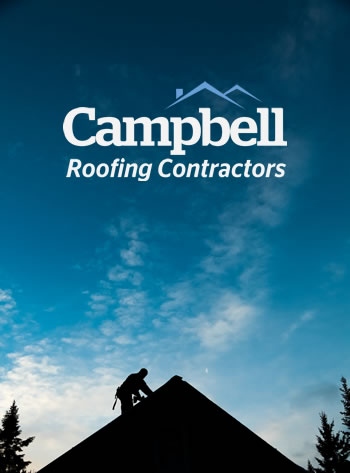Do you provide free, no obligation estimates?

Absolutely, we value each of our potential customers and welcome the opportunity to schedule, at your convenience, a time to discuss your roofing needs. Our experienced estimators will evaluate the condition of your roof and give you our professional assessment of the condition of your roof and options available.
Does a metal roof cost more than a typical roof?

Yes. Metal roofing is a premium home product, you can expect your new roof to cost more than what an asphalt shingle roof costs. However, a metal roof is comparable in price to tile roofing or cedar shake roofing. If you currently have a slate roof, you can expect your metal roof to cost less.
No matter what kind of metal roofing style you choose, you’ll never have to worry about your roof again. Most come with a true 30 to 50 year warranty. Plus, your new metal roof will add to the resale value of your home, save you money on your energy bills, and give you piece of mind that you’ll likely never have to re-roof again.
Do you offer roof repair?

Yes, we do! Our goal is to get you the best solution we can to ensure you have a secure, dry roof over your head. If your roof just needs a simple repair we will do that too. If it needs a full roof replacement, we will let you know. We will give you recommendations and options after a thorough roof inspection.
Do you help with roof insurance claims?

Yes, we are roofing insurance claim experts! We recommend that you call us prior to submitting a claim, so we can inspect your roof to help determine if you have sufficient damage to open a claim. We can help you understand the claims process. We will also be happy to meet with your adjuster to assist in documenting and specifying the cost for a suitable repair or replacement.
How long does the re-roof project take?

Here’s where we like to be careful at Campbell roofing. We never want to over-promise and under-deliver, so the best (and worst) answer is, “it depends.” All conditions being perfect, the average residential roof, should take two to three days to complete, if your roof is substantial in size it could require additional time.
However, if we are quoting you after a hurricane or other natural disaster that has affected the entire area, materials and labor may be in short supply due to high demand. Also, delivery supply chains could have been affected slowing the delivery of materials. One thing you can count on is that you will get an honest answer and realistic timeline from Campbell roofing Contractors.
Can you just re-cover over my old roof?

The answer is yes, and no. Yes, some roofing companies will do this, and “no” Campbell Roofing will not do this. Campbell Roofing offers a personal warranty, over and above the manufacturers guarantee on every roof we replace and this practice is not what we recommend. Most insurance companies will not cover layered roofs due to the liability associated with this roofing technique. Tearing off existing materials, inspecting the wood underneath and then installing your new roof is the only way to guarantee optimum long-term performance.
What is Flashing?

Flashings are used wherever something intersects the roof. These are the most important areas of your roof. Various materials can be used to protect these areas: sheet metal (copper, galvanized steel, aluminum) lead, ice and water shield, membranes and sealants can be integrated at siding, chimneys, walls, gutter lines, skylights, pipes and vents.
If the existing flashing is in good shape they can sometimes be re-used. However, since flashing can be the most critical roof component we recommend new flashings if there is any concern about the existing.
Will you assist in replacing gutters if needed?

We will evaluate the condition of your guttering at the time of inspection and give you options. You may want new gutters because of aesthetics if they are showing signs of age or you decide to change the color of shingle for re-roof purposes. If there are signs of storm damage, this will be brought to your attention as well.
How do I know if I need a new roof?

There are many factors to consider when determining the needs of a re-roof. Algae, curling shingles, blistering, missing shingles, rotting are just a few of the symptoms our professionals look for. The area you live in and weather conditions play a large part to the longevity of your roof. Upon inspection, we can determine the condition of your shingle and make recommendations based upon our findings.
How can you tell if I have hail damage?

Hail damage can be hard to spot if you do not know what you are looking for. If you suspect hail damage, we recommend calling a licensed roofing contractor like Campbell roofing to professionally inspect your roof. Hail damage will dent metal roofs and will break shingle granules loose. If you have excessive granules accumulating in your gutters, you may have hail damage. Call us for a free roof inspection if you want to know if you have hail damage.
Do you clean up after the project is completed?

Absolutely! All debris will be removed from your property and cleaned on completion. Upon completion, a magnet will be run to remove any excess nails. A final inspection will be performed of your new roof and grounds to assure your complete satisfaction.
How do I pick the best roofing company?

Check for a proven track record. Ask for references and follow up with phone calls. Call your local Better Business Bureau and if complaints were found, were they resolved in a timely manner to the satisfaction of the homeowner? Ask for names of local suppliers where they do business and make sure they are in good standing. Request insurance verification to be sent to you from the carriers to ensure coverage. Make sure they have both worker’s comp and liability insurance, if they don’t have insurance you are exposed to risk of a worksite personal injury lawsuit.
Will my metal roof match my home and neighborhood?

Today’s residential metal roofing is made to look exactly like common roofing material – such as asphalt shingle, cedar shake, clay tile or slate roofing – only stronger and more durable. Metal roofing comes in a wide variety of styles, colors and patterns – there’s certain to be a style and finish to match your home and neighborhood.
Do metal roofs attract lightening?

Lightning is attracted to the highest point, not necessarily metal. A metal roof has no greater chance of being hit by lightning than any other type of roof. However, if your roof would be struck by lightning, a metal roof can help prevent your home from catching on fire because it can dissipate the electrical charge. More importantly, it is noncombustible.
How heavy are metal roofs?

Metal roof systems in most cases weigh between 1 to 3 pounds per square foot. The actual weight is dependent upon metal gauge and profile of the panel. Metal
roof systems are considered a lightweight roof covering compared to their counterparts. The following illustrates the different types of other roofing materials and their respective weights per square foot:
Asphalt Shingle: 2 – 3.5 pounds per square foot
Textured Asphalt Shingle: 3.5 – 5 pounds per square foot
Wood Shingles/Shakes: 3.5 – 4.5 pounds per square foot
Clay or Concrete Tile: 5.5 – 10 pounds per square foot
Is there a minimum slope for metal roofs?

There is a wide variety of panel systems to meet a variety of slope requirements. Information regarding minimum slope requirements vary for each product. Typically, metal panel systems can be applied to pitches of 1 : 12 or greater. Actual minimum slopes may be dependent upon roof geometry, substrate, and physical location of the project.
Do metal roofs really last longer?

You can expect a metal roof to last at least 2 to 3 times longer than a regular roof. In general terms, count on a metal roof lasting 40 to 60 years and beyond.
To put it in context, the average life span of an asphalt roof is 12 to 20 years. That lifespan can be shorter depending on the pitch of your roof and the climate in your area.
Other roofing materials like wood shingle, shake and tile have varying degrees of weather-related problems that lead to breakdown. Wood shingle and shake roofs often need replacement before twenty years. Concrete tile roofs can crack and warp in the freeze/thaw cycle of more northern climates. All of the above roofing materials are well-outlasted by metal roofing, which retains its good looks and durability decade after decade after decade.
Are tile roofs more expensive?

Yes, however while the initial cost of a tile roof will be more than a shingle roof, aesthetic appeal, higher durability, a better wind-rating, and a longer lifetime can easily make it the better choice for many homeowners.
Are tile roofs available that don’t look Spanish/Mediterranean?

Yes. Roof tiles come in many shapes and sizes, ranging from authentic Spanish and Mediterranean to random slate and rustic shake designs. The wide range of shapes and colors available make it possible to enjoy all the advantages of a genuine tile roof while maintaining any architectural theme.
Can I walk on a tile roof?

Negative Ghost-rider. We recommend as little foot traffic as possible on a tile roof. Tiles have air between themselves and the underlay and too much pressure may cause them to crack.
Do concrete roof tiles fade?

Mostly yes. Over time concrete roof tiles do fade, and change color and appearance due to exposure to the elements. However, this will not affect the integrity or beauty of your roof. Color is achieved within concrete roof tiles one of two ways: by adding pigment into the body of the tile producing a color-through product, or by applying a concentrated slurry coat of cement-infused pigment to the top surface of the tile, known as a slurry/color-bonded product.
Is a tile roof fireproof?

Concrete and clay roof tiles have Class A fire-ratings, which mean they are non-combustible. Both types of roof assemblies maintain their Class A fire-ratings throughout their life cycles, requiring no additional or periodic treatments. In addition, structures with Class A-rated tile systems may be eligible for lower fire insurance premiums.
Is a tile roof environmentally friendly?

Both concrete and clay roof tiles are made from materials that do not deplete precious natural resources. Tile is manufactured without chemical preservatives, and old tiles can be recycled to make new tiles or other products. Roof tiles are also energy efficient. Due to the superior thermal capacity of roof tiles and their natural ventilated air space, a tile roof can lower air conditioning costs in warm climates and produce more constant temperatures in colder regions.
Is tile too heavy for my house?

Yes and No. Most new residential and commercial structures will require little or no additional structural support for tile installation. Several tile roof manufacturers offer lightweight tile specifically designed for re-roofing projects. If any concern about weight of a tile roof for your application, we recommend contacting a licensed and certified building engineer to inspect the current structure to determine if tile can be an option.


How to Choose the Right Roofing Contractor
Whether you’re purchasing or repairing your roof, you’ll need a trusted professional to help you make the best choices for your home.
But if you’ve never been through the process of hiring a roofing contractor before, it can be difficult to know what to look for. From referrals and licenses to manufacturer designations, here’s how to decide which roofing professional to trust with your home.
Ask for Recommendations or Referrals
One of the best ways to find a roofing contractor is to ask people you trust for recommendations. If you have a friend, relative, or neighbor who has had their roof repaired or replaced in the last few years, ask them who they used.
Many communities and neighborhoods also have local Facebook groups or message boards. You can use these resources to get recommendations for experienced local contractors—and find out what roofing companies you should avoid.
Do Your (Online) Research
Whether you first connect with a contractor though a recommendation, a quick Google search, or the contractor knocking on your door while canvassing, it’s important to do your research before hiring someone.
Check different sources for online company reviews, go to the contractor’s social media pages to see what customers say, and see if they have a website that offers details on their products, services, and the number of years they’ve been in business. You’re looking for a company with a good track record and reputation. Once you’ve gathered all this information, you’ll be able to make a more educated decision.
Check the Contractor’s License and Insurance
You want to work with a contractor who is licensed (in areas where licensing is required) because knowledge of local codes and regulations is extremely important.
If your state does require roofers to be licensed, you should be able to do a license check on your state’s Department of Consumer Affairs website or on the site of its business licensing office. If your state does not require licensing, check with your municipality. You can also ask your contractor for a copy of their business license.
It’s also important to make sure your contractor is insured with coverage for all their employees and subcontractors. This will protect you if a worker gets injured on your property. Working with a roofing contractor who is properly licensed and insured can help reduce your financial risk and increase the chances that you will get a professional installation.
Check the Better Business Bureau
The Better Business Bureau has a database of information about businesses in different industries all across the country. You can search by business name or business category (i.e., roofing), and then enter the name of your town or zip code to find companies that have accreditation from the Better Business Bureau or that have been given a high BBB rating.
Some listings also feature customer reviews, which is another way to figure out if you want to work with a company you’ve come across in your research.
Look for Manufacturer Designations
Manufacturer designations can be helpful because they mean the contractor is likely familiar with the products you are looking to install. Additionally, you can check the manufacturer’s website to understand the criteria for meeting a specific designation, which might tell you more about the contractor’s business.
For example, GAF Certified Contractors, which involves ongoing training and requires contractors to be properly licensed and insured. GAF Certified Contractors must have general liability coverage and are required to have a satisfactory Better Business Bureau rating to maintain this designation.
Working with a GAF factory-certifed contractor* can instill confidence that you’re getting a professional installation with quality materials that offer the best protection.
You can also get an enhanced warranty, which may reduce your out-of-pocket expenses in the future if the problem arises out of a manufacturing defect in the products or in some cases, their misapplication. Carefully review the manufacturer’s warranties before making a final selection.
Choosing the Right Contractor for Your Home
When you choose someone to work on your home, price shouldn’t be the only consideration. Experience, quality of service, and reputation also matter.
If you need work done on your roof, take the time to do your research. Ask for recommendations, check the Better Business Bureau’s website, and look for manufacturer designations that indicate a potential contractor is licensed and insured. Following all these steps can help you enjoy peace of mind about picking the right professional for the job.



